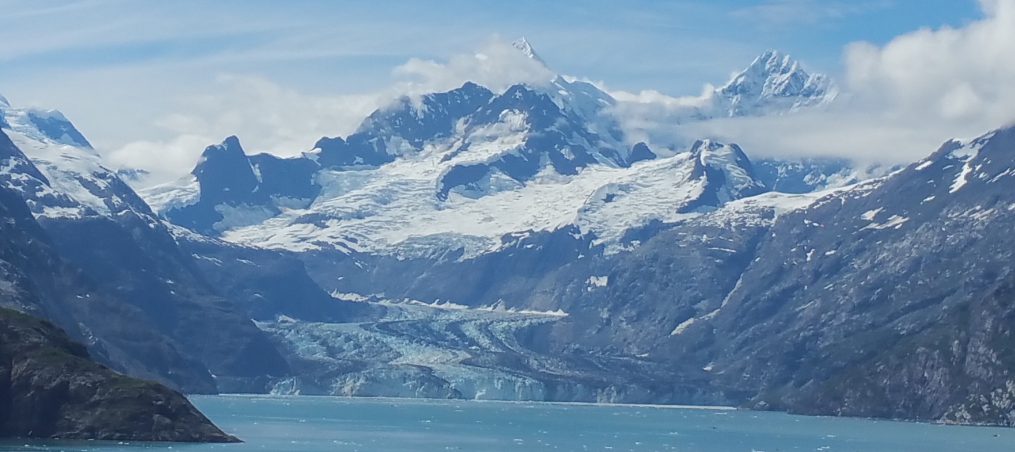“Everyone needs beauty as well as bread, places to play in…where nature may heal and cheer and give strength to body and soul.” John Muir
“It is astonishing how high and far we can climb mountains that we love, and how little we require food and clothing…No sane man in the hands of nature can doubt the doubleness of his life. Soul and body receive separate nourishment and separate exercise, and speedily reach a stage of development, wherein each is easily known apart from the other. Living artificially, we seldom see much of our real selves.” John Muir
I came across both of these quotes today by John Muir, legendary activist and protector of the woodlands of this country, who in many ways has a love affair with the outdoors. It becomes not only the avenue for finding himself but for finding a being greater than himself, although rarely wrote about God. He is considered the Father of the National Parks.
If there is one thing I have learned in spending time in the outdoors, whether it’s here at Acadia, the Grand Canyon, the vast forested area of Alaska, or even the shores of Maryland and Jersey, it’s that deep down what defines the soul is something much more than an urban landscape but rather a never-ending twist and turn, yet explored area that very much resembles these wild and uncharted lands that I’ve had the opportunity, and really, privilege, to explore.
His sentiments have been mine through these experiences, that the natural mountains that we climb or even the vast chasms that we descend throughout this land, how little, we begin to realize, that we truly need. What becomes our challenge as humans is that we often climb illusions of mountains in our lives, seeking power, prestige, so often missing along the way just what it is we’re losing, forgetting, ignoring, that we become blinded by the climb itself. A return to the mountains is a good reminder of how we fall prey to the illusions that power and climbing seems to offer, leaving us insecure and fearful of losing something that was never really real in the first place.
Of course, descending the chasms can be just as challenging. The fall from the illusion of grandeur can be a humbling experience when we begin to see what it is that we have forgotten or ignored along the way. I had that experience climbing, and descending, in Acadia this week, so intent on getting to the top of the mountain and not until I started to descend did I begin to see things differently, as if the hardness of the climb began to dissipate, noticing a fallen tree, a sparkling stream, an unnamed path that leads to one of the most spectacular views and serene locations in the park.
It seems in either instance, our temptation to remain at the top or simply climb, as we see so often in our culture and society, but also to become attached to the bottom, walked upon, taken advantage of or needing to please, both begin to increase what it is that we seem to need in our lives, when the insecurity and fear begin to take root in our hearts and souls, no longer free. In the words of John Muir, a separateness of heart and mind begins to form, creating a deeper chasm within ourselves. In some ways, we become needy and no matter what it is, nothing seems to be enough.
The more I give myself the space to explore the outdoors, which in turn frees me to explore myself, the more I see the value in protecting our lands and leaving them as a place of wonder and exploration. Whether it was watching a group of young boys play the 21st Century version of “cops and robbers” on Cadillac Mountain or even getting lost myself and being aware of the anxiety it brings up within myself and learning again to trust that deeper instinct and voice. Over and over again, the natural world has something to teach and to help us to understand not only about itself, but about ourselves and even about God. In not only helps to fill the chasm between the head and heart, it helps to fill the chasm between humans and the natural world, where everything belongs.
The freedom necessary to not live an “artificial” life as Muir speaks about, requires a letting go, surrendering, and living a life filled with the grace of detachment. No, not in the sense of not caring, but rather in its natural sense, where I can surrender outcomes and trust God no matter what happens. Otherwise, we predict the outcome, which in and of itself, is an illusion, artificial. And we’ll do it to ourselves again and again. The natural world teaches us to be free, to go where the wind blows, and to accept not what should be, but rather, what is, gradually dispelling the artificialness and leading us to a holiness and a wholeness, reminding us how Muir is correct, in how little we really need to experience the fullness of our lives.
